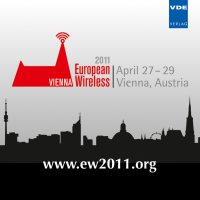Low Complexity Selection Cooperation Techniques Using Information Accumulation in Dual-Hop Relaying Networks
Konferenz: European Wireless 2011 - Sustainable Wireless Technologies
27.04.2011 - 29.04.2011 in Vienna, Austria
Tagungsband: European Wireless 2011
Seiten: 7Sprache: EnglischTyp: PDF
Persönliche VDE-Mitglieder erhalten auf diesen Artikel 10% Rabatt
Autoren:
Nikjah, Reza; Beaulieu, Norman C. (iCORE Wireless Communications Laboratory, Dept. Elect. Comp. Eng., University of Alberta, Edmonton, Alberta T6G 2V4, Canada)
Inhalt:
Three low complexity, single-parameter, selection cooperation protocols, called P-n, P-γ, and P-t, are introduced for dual-hop relaying networks. The protocols are based on information accumulation, and can potentially be implemented using rateless codes. The protocols have low complexity in terms of the relatively small number of signal-to-noise ratio (SNR) measurements, not requiring global channel gain information, not involving simultaneous multiple transmissions, and using a single design parameter. The expected transmission time for the three protocols is analyzed for block fading channels. As a baseline for performance comparison, a rate optimal protocol, called P-o, is proposed. In the single-relay case, all the protocols, if used with their optimized parameter, coincide with P-o. Large SNR approximations to the optimal parameters, which have good accuracy in large SNR regimes, and satisfactory accuracy for smaller values of SNR, are obtained. The dependence of the optimal parameters on the network parameters is numerically studied for Rayleigh fading. The average rate performances of the schemes are compared with other comparable previous relaying schemes through numerical examples. It is observed that the suboptimal schemes exhibit near-optimal rate performances.


